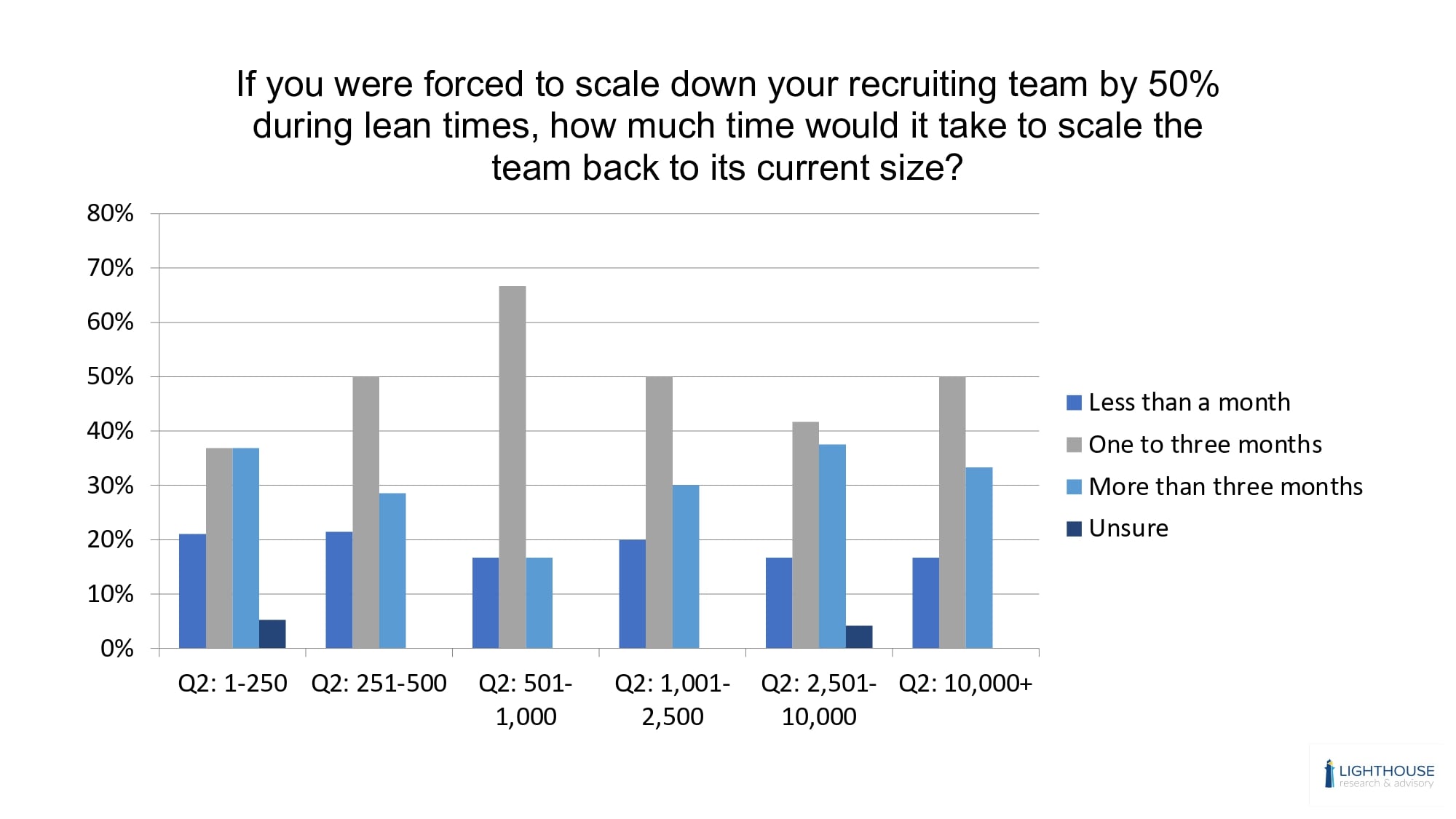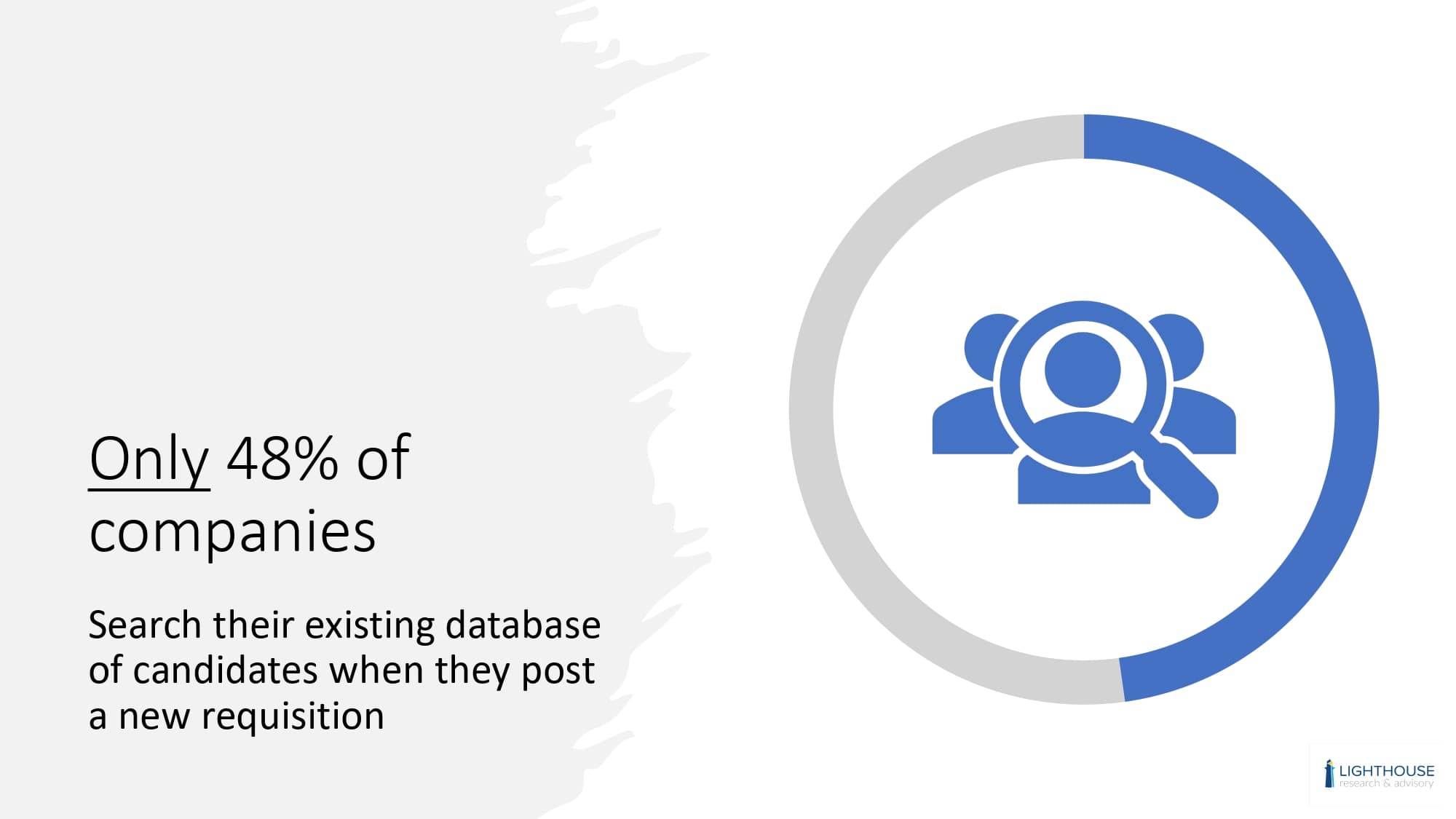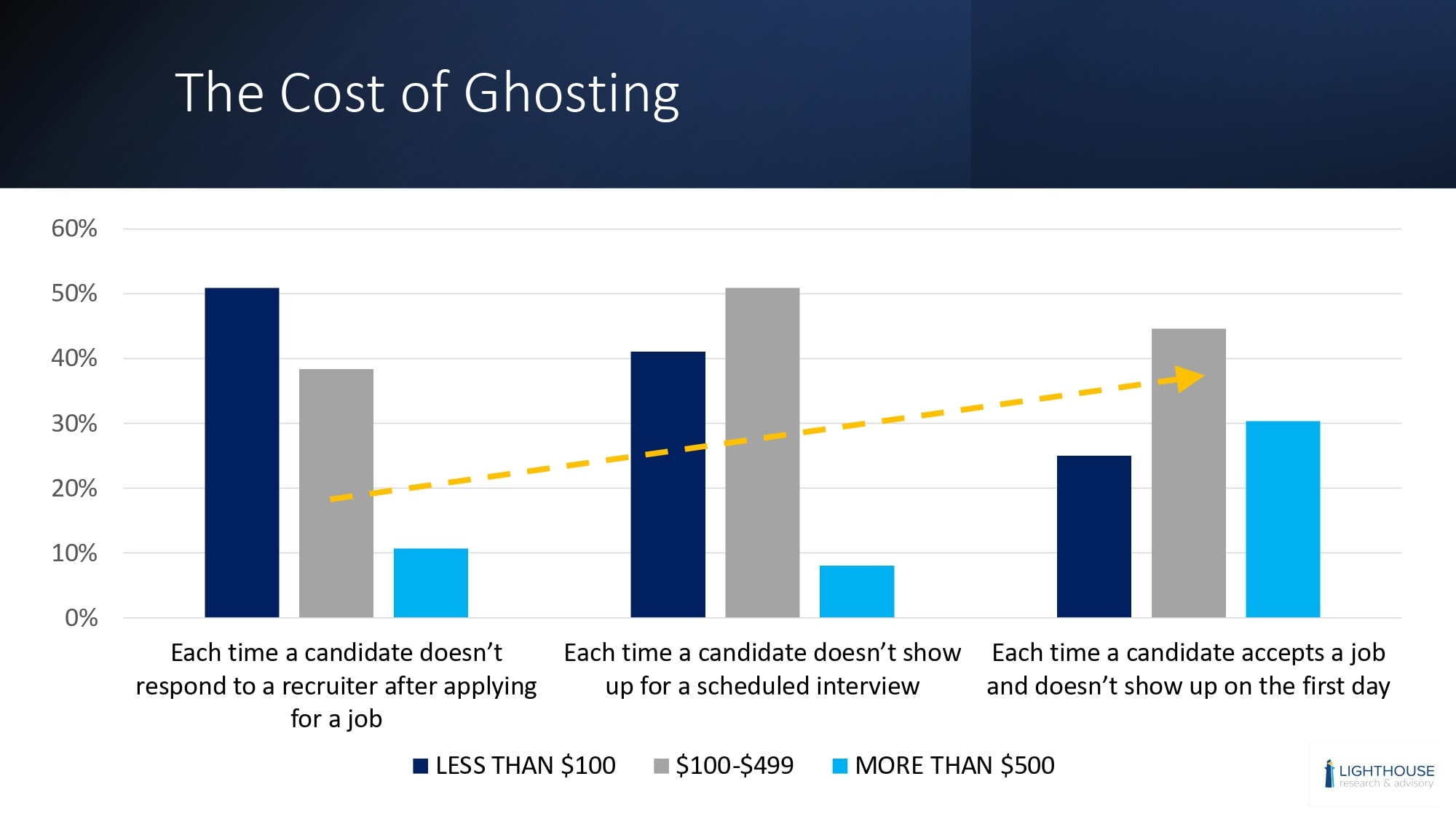
To effectively support employers with their hiring challenges, RPO providers must deeply understand their specific struggles. In 2023, many employers needed help meeting workforce targets, efficiently managing their TA teams, directly sourcing talent from internal databases, and handling the cost of ghosting. At the 2023 RPOA Annual Conference, Chief Researcher of Lighthouse Research and Advisory Ben Eubanks gave RPO providers a clear understanding of those challenges. Here is a recap of his presentation.
The Reality of Talent Acquisition
Eubanks started his presentation by highlighting the research that shows the tumultuous reality of talent acquisition(TA). In 2023, he said, the hiring challenges many employers needed help with include hiring forecasts, efficiently managing their TA team, sourcing talent with internal databases, and holding down the cost of ghosting.
Hiring Forecasts
Eubanks pointed out that the 2023 RPO Value and Insight Study shows that 47 percent of employers said they needed to hire more people, 29 percent said they hired too many people, and only 22 percent hit their hiring targets.
His key takeaway is that RPO providers have the expertise to solve hiring forecast challenges and that employers look to them for insights into who they should hire, how they should hire, and how many they should hire.
Download Your Free Copy of the 2023 RPO Trend: Buyer's Guide.
Managing TA Teams
Employers have begun to lean into recruiting automation to figure out how to manage the abrupt shifts to increase and decrease the size of their TA Teams. Eubanks said that employers’ desire for recruiting automation in this regard is so strong that acquiring talent technology has become their new top priority.
Besides talent technology, RPO solutions allow employers to manage hiring fluctuations better, scaling RPO resources up and down depending on hiring volumes. This flexibility is a crucial benefit of RPO programs, given the time required for employers to scale their internal hiring function back up once they downsize their recruiting team.

Steve Kimball, Vice President of Talent Acquisition at Qlik, said, “Some believe that RPOs are meant to replace TA organizations, but I firmly believe that they can be leveraged to help improve and stabilize a high functioning [TA] teams. Many companies are scaling hiring up and down rapidly, demanding quick time to fill and strong candidate fit to values and competencies. This is where partnering with an RPO can give you the best of all worlds with incredible urgency and scale.”
Employers Fail to Direct Source Talent From Internal Database
More than half, 52 percent, of employers are missing out on potential talent by not searching their internal databases when looking to fill positions. Eubanks reminded the audience that direct sourcing talent in internal databases is a common practice for RPO companies. He encouraged attendees to highlight this tactic when talking with current and future clients to show the value direct sourcing brings to this hiring challenge.

The Cost of Ghosting
The 2023 RPO Value and Insight Study indicates that the hiring challenge of ghosting can be costly for employers during the hiring process. Ghosting is when a candidate suddenly disappears from the hiring process. Eubank's research team found that most employers lose less than $100 when a candidate fails to follow up with a recruiter after applying for a role. However, the cost of interview ghosting averages between $100 and $499 for most firms, with 9 percent seeing costs higher than $500. When a candidate accepts an offer but ghosts their first day on the job, 30 percent of employers suffer a loss of more than $500.
Eubanks described the most important factors candidates look for in a company's hiring process to give the audience an idea of why ghosting happens. In 2022 and 2023, most candidates wanted to know the role's starting salary/pay rate. In 2022, about 35 percent of candidates wanted to talk with a recruiter who made them feel understood; in 2023, almost half of candidates wanted to feel appreciated when speaking with a recruiter. Forty percent of candidates interviewed stated that having a fast hiring process was important. Candidates 24 years old and younger are twice as likely to ghost the process if they perceive it as taking too long than those 45 and older. Employers and RPO providers can use this data to bring creative solutions to fix the ghosting problem.

Conclusion
In 2023, hiring challenges were prevalent for employers aiming to meet workforce targets. From ghosting to managing talent acquisition teams and direct sourcing quality candidates from internal databases, these demands require attention. RPO companies offer leaner and more experienced recruiting processes to overcome these challenges. Ensuring candidates feel understood and providing an easy and fast hiring process is crucial. Moreover, ghosting can have costly implications. RPO providers address these economic concerns by offering effective solutions. If you want to stay informed about the top hiring challenges employers face, we encourage you to watch Ben's full presentation on demand at our 2023 RPOA Conference page.







-min.jpg)







